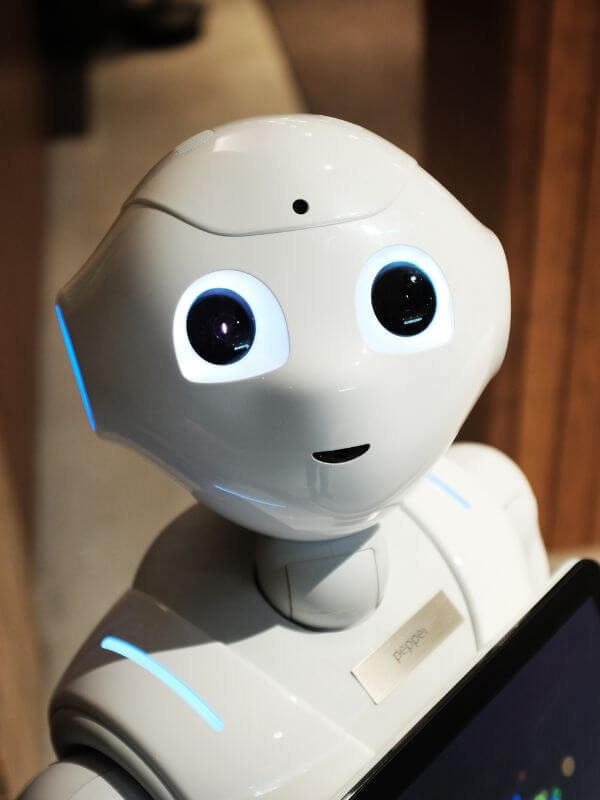AI is changing the world, something big is happening in Tech, and it is not getting the attention it deserves. Artificial intelligence is no longer just helping programmers; it is writing their code. The numbers coming out of major tech companies should make anyone consider a career in programming.
Big Tech Companies Are Already Using AI To Write Code

Here is what should scare you. According to The Atlantic, companies like Microsoft and Alphabet now rely on artificial intelligence for generating nearly 25% of their code. That’s not a typo. One out of every four lines of code at some of the world’s biggest tech companies is written by a machine.
This is not some experimental program tucked away in a corner office. We are referring to the actual code that powers Google searches and Microsoft Office. The AI tools have become so good that they are part of the regular work now. Programmers use them every day, and honestly, many can’t imagine going back to doing everything manually.
The productivity gains are real. Why spend hours writing boilerplate code when AI can do it in minutes? But here is the thing nobody wants to talk about: if AI can write the simple stuff, what happens to the people whose job it was to write that simple stuff?
Young Programmers Are Getting Squeezed Out
The job market data tells a story that should worry anyone just starting their career. The Atlantic found that employment of 22–27-year-olds in computer science and math roles has dropped by 8% recently. Sure, Tech plays a part, but automation is becoming a bigger factor.
These are exactly the ages when people typically land their first programming jobs. Fresh graduates, Boot Camp completers, people making a career switch into Tech. These entry-level positions are where you learn the ropes, where you prove yourself, where you build the foundation for everything that comes after.
But those jobs are disappearing because AI can handle a lot of what junior developers used to do. And executives aren’t hiding it. Leaders at Microsoft and Alphabet have openly said that AI plays a significant role in their production now. At new companies like Anthropic, they have gone further; they are eliminating junior-level coding positions.
It Was Bound To Happen
Here’s something interesting—regular people understand what’s happening better than many in the Tech industry want to admit. A 2025 Pew Research Centre survey found that 48% of Americans believe software engineers will be among the professions most affected by AI in the coming years.
That’s higher than teachers, journalists, or accountants. For years, everyone assumed robots would come for factory workers and truck drivers first. Turns out, the college-educated programmers might be in line before the blue-collar workers.
Why Are Students Leaving Computer Science?

Want to know how fast this is moving? Just look at what students are doing. After years of explosive growth, computer science enrolment has hit a wall. National growth in CS majors slowed to just 0.2% this year, according to data in The Atlantic.
But here’s when it gets really telling: the drop is biggest at the schools that matter most—Princeton and Stanford, the places that used to guarantee you a ticket to Silicon Valley. Their computer science programs have shrunk. Princeton expects nearly a 25% decline in CS majors within two years.
These aren’t kids making emotional decisions. Students at these schools research everything. They talk to alumni, they look at job placement trends, and they analyse salary trends. If they are walking away from computer science, they have done the math.
And the math makes sense when you think about it. Why would you spend four years learning to code when:
- Tech companies are laying off workers, facing massive waves
- Visa policies are getting tighter for international students
- AI is already doing a quarter of the coding at major companies
- Nobody knows what programming jobs will look like in five years
What Happens Next?
Universities are scrambling to figure this out. Should they shrink their computer science departments? Should it be completely redesigned? Some are pushing interdisciplinary programs—CS combined with ethics, biology, or design. The idea is that maybe you need something beyond your programming skills to stay relevant.
For students still considering this field, the question is not whether to learn programming. It’s what else you need to learn alongside it. The programmers who survive this shift will probably be the ones who can think bigger than just writing. They’ll need to understand systems, work with people, and solve complex problems that AI can’t handle.
Follow Us: Facebook | X | Instagram | YouTube | Pinterest













